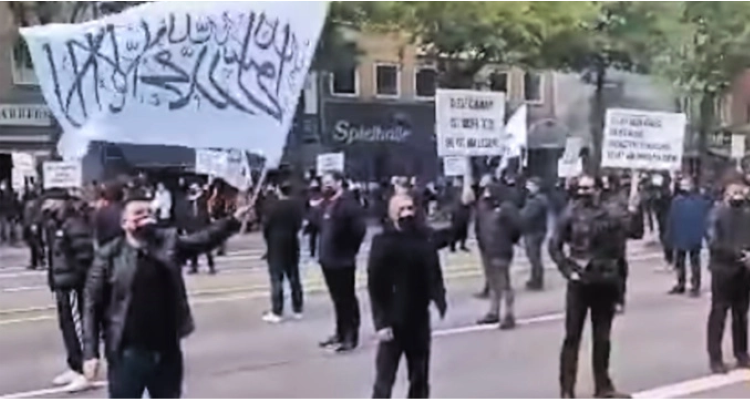Police presence has increased outside synagogues and other Jewish communal buildings.
By Ben Cohen, The Algemeiner
Jews in Berlin are facing an “extremely tense” situation amid rising hostility emanating from the Oct. 7 Hamas pogrom in southern Israel, the German capital’s top official combating antisemitism warned on Wednesday.
“Since the barbaric antisemitic terrorist attack by Hamas on Oct. 7, the security situation for Jews and Israelis in Berlin has been extremely tense,” Samuel Salzborn — the antisemitism officer for the state of Berlin — told the Taz news outlet. “We had a series of extremely aggressive antisemitic gatherings and rallies, the daubing of residential buildings with antisemitic symbols, an attempted arson attack on the synagogue on Brunnenstrasse, and most recently several destructions of Hanukkah menorahs. Since then, the whole thing has become more widespread, for example at universities, where Jews are treated with hostility.”
Asked whether stiffer security measures were warranted, Salzborn noted the increased police presence outside synagogues and other Jewish communal buildings. “The big risk is everyday life: situations and places in which you cannot provide full protection,” he said. “You never know exactly where in Berlin something can happen. Many live with the great, understandable, and justified fear that they could be spontaneously attacked if they are identified as Jews, for example by wearing a necklace with the Star of David.”
Salzborn highlighted the role of Islamist and pro-Hamas organizations in stirring antisemitic sentiment, describing groups such as Samidoun — a Palestinian prisoner solidarity organization that was banned following the Oct. 7 atrocities in Israel — as the “drivers” of such discourse.
“I would venture to say cautiously: If the federal minister of the interior had announced the ban earlier, the escalations here would not have been so severe,” Salzborn commented. “An antisemitic meeting does not mobilize several thousand people spontaneously and out of nowhere. These are organizational structures that coordinate this, call for it, and set slogans.”
On the question of antisemitism among Germany’s Muslim communities, Salzborn highlighted the historical context, pointing out that during the Nazi era, support for Hitler’s regime was widespread in the Arab world. “It is clear that not all Muslims hold antisemitic positions,” he remarked. “But what the people representing them say is also crucial in this milieu: How do they control things, how do they influence things? Islamists focus on hatred of Jews, and if there are no opposing voices from a Muslim milieu, it stays in the room.”





